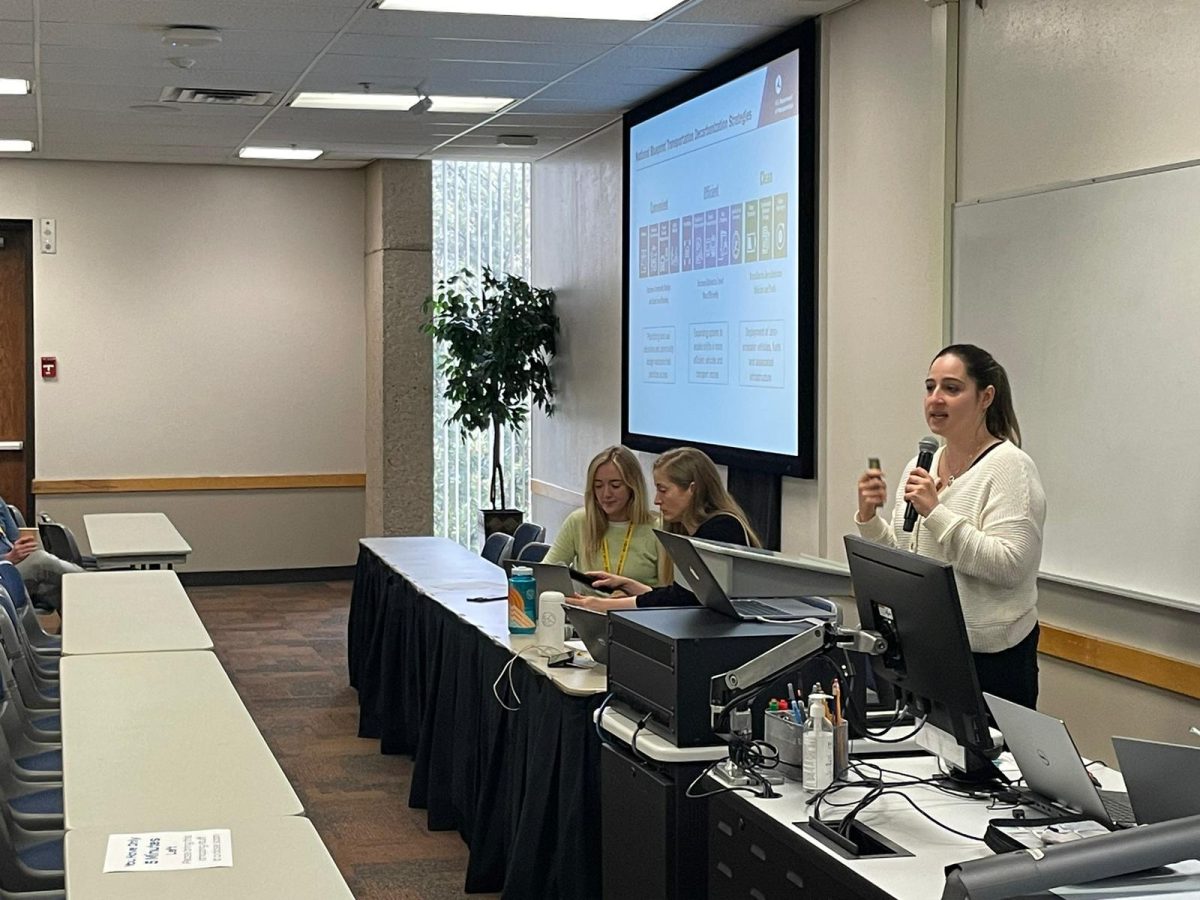Reducing the distance between destinations, improving public transport and electrifying vehicles could help address the housing, transportation and environmental issues in Austin, panelists said at a housing-affordability conference on Feb. 27.
YIMBYtown, which stands for Yes In My Backyard, platforms council members, state and federal policymakers and pro-housing advocates at a nationwide annual housing affordability conference. This year, it took place in the University’s Thompson Conference Center, where panelists discussed the rising costs of housing and transportation in Austin.
The land reform panel hosted four speakers: Liya Rechtman, a policy advisor for the U.S. Department of Transportation; Matt Frommer, a senior transportation associate at the Southwest Energy Efficiency Project; Jackie Lombardi, a senior associate at Rocky Mountain Institute, an organization dedicated to creating a zero-carbon future; and RMI manager Heather House. The speakers focused on lowering the number of vehicle miles traveled to combat gas emissions by implementing land use reforms that compact the city.
Transportation is the number one contributor to carbon emissions, making up almost 30% of all emissions, Lombardi said. The country cannot meet its climate goals without reducing how much residents drive and shifting where developments are built, she said.
Cities also need to become more compact and reduce the distance between destinations, Rechtman said.
House said applying compact development to land use reforms can reduce up to 70 million tons of carbon dioxide in 2033, citing an RMI study. She said if Texas and other growing states apply land use reforms, they could see a 9% decrease in per capita vehicle miles traveled in 2033 compared to a model where Texas did not use the reforms.
The country can also reduce vehicle miles traveled by 20% through transportation strategies like adding more sidewalks or bike lanes, Lombardi said, and stopping highway expansions like I-35, which can invite more cars to the road.
Denver, Colorado recently cut their own highway expansion project that would have split the city in half, Frommer said. The city will now use extra funds from the dropped expansion to advance public transportation, and projects relating to pedestrians, cyclists, safety and emission reductions. This reduces vehicle miles traveled by removing extra cars on the highway and redirecting those individuals toward public transportation.
“When you add a highway lane to a highway, it fills up with more traffic and more pollution,” Frommer said during the panel. “We have hundreds of examples of this around the country, and it’s well known for the research, so acknowledging that highways are essentially fossil fuel infrastructure, and when we widen them, we increase emissions from fossil fuels.”
Many activists and organizations, like Rethink35, deal with the same issue in Austin with the expansion of I-35, claiming it will bring pollution and traffic and decrease driving convenience.
An audience member asked if increasing transportation convenience through compact urban design would invite more drivers to the road, making the whole mission counterproductive. Rechtman said their goal is not to decrease the amount of trips people take, but rather to decrease the distance between destinations to reduce vehicle miles traveled through improved community design and land use planning.
“If you have more people bopping around, walking through neighborhoods, there are significant positive externalities for safety, community vibrancy, economic development, mental health, physical health and decreasing crime,” Rechtman said during the panel.













